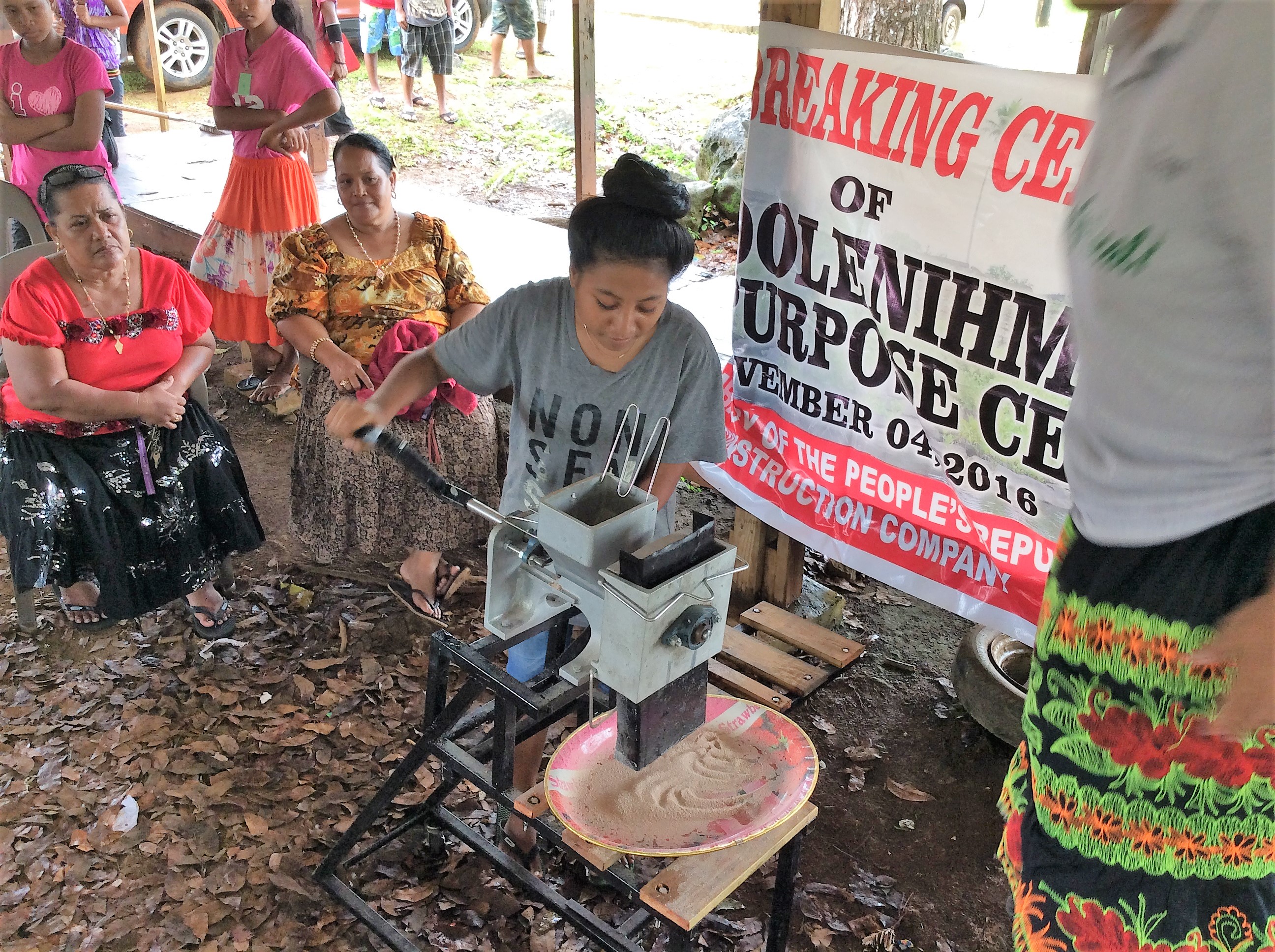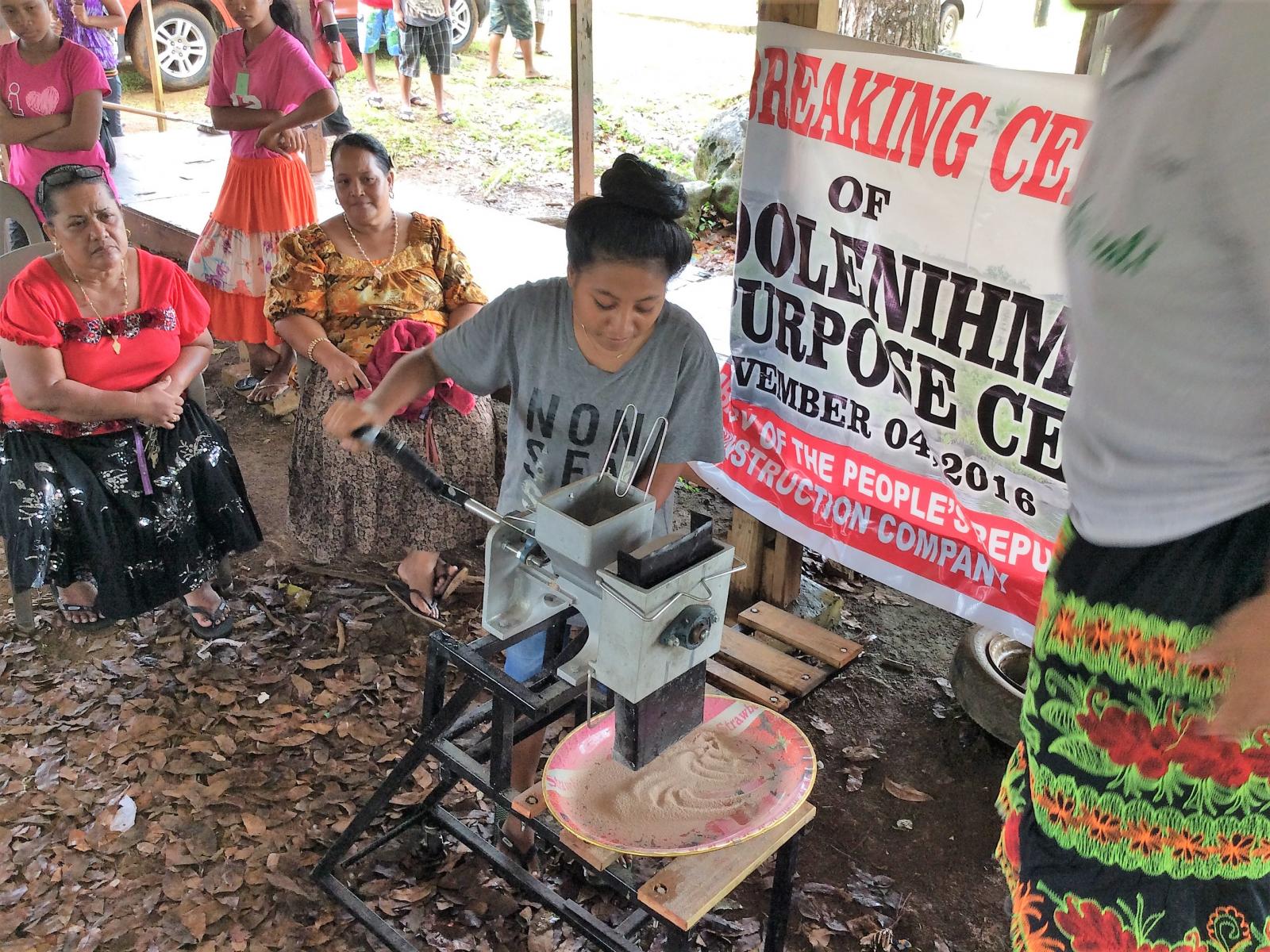An Overview Of Our Solution
- Population Impacted:
- Continent: Oceania
Organization type
Population impacted
Size of agricultural area
Production quantity
People employed
Describe your solution
Describe your implementation
External connections
What is the environmental or ecological challenge you are targeting with your solution?
Describe the context in which you are operating
About 30,000 of the 36,000 population of Pohnpei live outside the only town, Kolonia. Extended families live together, sharing agroforestry crops grown by traditional sustainable methods. Electricity is expensive and intermittent. Manual milling machines increase food security by extending the shelf life of seasonal crops and improve family economics through less spending on imported foods such as rice and processed meat. Women have more time for other activities with faster food preparation.
Milling machines in geographically dispersed and physically isolated areas help those who have the fewest resources readily available and therefore have the most need.
IFCP has provided 12 manual milling machines to communities on Pohnpei and surrounding islands. Requests for additional manual milling machines continue from local residents and from visitors from other Pacific islands who recognize the value of this method of expanding utilization of local foods with high nutritional content.
How did you impact natural resource use and greenhouse gas emissions?
Language(s)
Social/Community
Water
Food Security/Nutrition
Economic/Sustainable Development
Climate
Sustainability
Grant funding from the United States Department of Interior, Department of Insular Affairs, purchased manual milling machines. These machines should not require repair or expensive maintenance.
Return on investment
Entrant Banner Image

